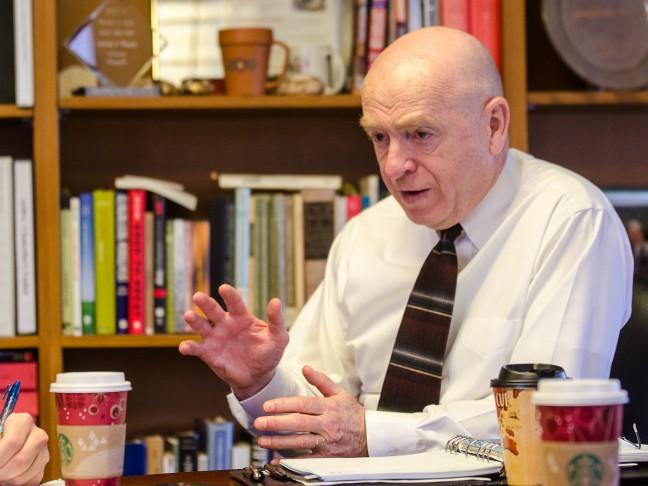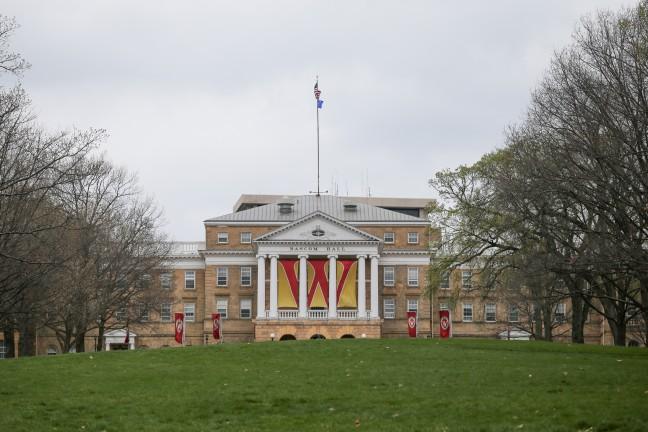The Board of Regents Business and Finance Committee approved tuition increases for non-resident, graduate and professional programs for University of Wisconsin-Madison during the regents’ meeting Thursday.
According to a UW System statement, these increases would be implemented in 2015-16 and are part of a four-year plan created by UW-Madison. Resident undergraduate tuition rates would not be affected by these increases.
Margaret Farrow, former Republican lieutenant governor and a regent, said in the statement that the regents need to stay tuned to Wisconsin citizens while increasing tuition to achieve the market value of similar competitive programs.
“I’m sensitive that we stay in a comparatively good, healthy spot looking at our peer institutions and our competition,” Farrow said.
The full Board of Regents will vote on these tuition increases during their meeting Friday.
During the All Regents Meeting, UW System President Ray Cross gave an update on his ongoing discussion with legislators to establish the UW System as a public authority and reduce the proposed cut. He said the net budget cut is closer to $350 million than $300 million but that progress is being made to decrease it.
“It is working and we are all playing a role,” Cross said. “It is truly a dialogue. That is what takes, time to get things done and get things done well.”
What Walker’s UW budget cuts and increased autonomy means for students and faculty
While Cross said he is confident in the progress being made to reduce the cuts, David Walsh, a regent, expressed frustration. He said he believed the Board of Regents was not garnering public support for the budget.
Walsh said they could achieve greater reductions in the budget cut and establish a legitimate public authority with the help of the public. He said the power of public support is evident in legislators’ responses to the uproar following the removal of the Wisconsin Idea from the budget proposal.
“They challenged the Wisconsin Idea and it was a typo within a week,” Walsh said.
Cross spent most of the meeting promoting changing the UW System to a public authority. Cross said the UW System is one of the top four most regulated university systems in the country, so its request for increased flexibility is not uncommon or unique.
Explained: What does the public authority mean for UW System?
According to Cross, this increased flexibility would emerge positively in ways such as financial management for the UW System and budgeting. He reassured the public that this flexibility would not lead to poorly regulated spending.
“Flexibility without accountability cannot endure,” Cross said.
Following Republicans’ proposal to absolve UW Colleges from budgets cuts, Cathy Sandeen, chancellor of UW Colleges and UW-Extension, presented the impacts the two institutions have on communities and the impact the cuts would have on them.
She said UW Colleges are currently the most affordable option of higher education for Wisconsin residents and have a 77 percent transfer rate to four year institutions. Sandeen said UW-Extension helps increase business growth both locally and nationally while also funding Wisconsin Public Broadcasting.
Cross said the importance of reducing the budget and establishing the UW System as a public authority goes beyond affecting just UW System members.
“This isn’t just about the future of the UW System …this is about the future of this great state,” he said.



















